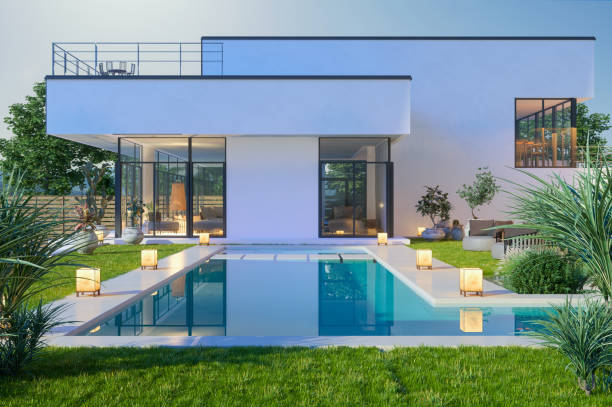Luxury real estate stands as a testament to architectural brilliance, unparalleled amenities, and opulent living. However, for investors and homeowners alike, understanding the intricate factors that influence the resale value of these prestigious properties is paramount. In this in-depth exploration, we dissect the key elements that contribute to the resale dynamics of luxury real estate.

Before diving into resale values, it’s crucial to grasp the essence of luxury real estate. These properties transcend mere dwellings, representing a lifestyle characterized by exclusivity, superior craftsmanship, and exceptional amenities. The unique blend of location, architectural grandeur, and top-tier features distinguishes luxury real estate from conventional properties.
Factors Influencing Resale Value
Location Dynamics
The age-old adage in real estate, “location, location, location,” holds particularly true for luxury properties. Proximity to cultural landmarks, scenic views, and exclusive neighborhoods significantly influences resale values.
Architectural Appeal
The aesthetic and architectural uniqueness of a property play a pivotal role. Iconic designs and structures crafted by renowned architects often retain or appreciate in value, attracting discerning buyers.
Amenities and Features
Luxury real estate is synonymous with extravagant amenities, from private spas and theaters to smart home technology. The presence of these features not only enhances the resident’s experience but also contributes to the property’s resale allure.
Quality of Construction:
The quality of materials used and the craftsmanship employed in construction directly impact resale value. High-end finishes and meticulous attention to detail elevate a property’s perceived value.
Market Conditions
The broader economic climate and real estate market conditions play a crucial role. In a seller’s market, luxury properties may fetch higher prices, while in a buyer’s market, strategic pricing becomes essential.
Historical Significance
Luxury properties with historical significance often have added cachet. Restoration of historical homes or residing in buildings with a rich past can contribute positively to resale values.
Upkeep and Maintenance
Pristine upkeep and regular maintenance are non-negotiable. Buyers are more inclined to invest in a property that has been well-maintained, minimizing the need for extensive renovations.
Neighborhood Trends
The desirability of a neighborhood evolves over time. Changes in the local community, infrastructure developments, and emerging trends can impact the resale potential of luxury real estate.
Smart Technology Integration
The incorporation of smart home technology is increasingly becoming a selling point. Automated systems for security, lighting, and climate control enhance the property’s modern appeal.
Environmental Considerations
With growing environmental awareness, sustainable features such as energy-efficient appliances, green spaces, and eco-friendly construction materials can positively influence resale values.
Case Studies: Real-world Examples
Illustrating these factors through real-world case studies can provide concrete insights into how specific luxury properties have demonstrated resilience and appreciation in resale values.
Conclusion
In the dynamic realm of luxury real estate, understanding what influences resale values is pivotal for both buyers and sellers. As we navigate through the various facets of location dynamics, architectural appeal, and market conditions, it becomes clear that the resale value of luxury properties is a nuanced interplay of tangible and intangible elements.
By staying attuned to these factors, stakeholders in the luxury real estate market can make informed decisions, ensuring a harmonious blend of investment and lifestyle.
Related Articles
What defines luxury real estate, and does this vary globally?

You have remarked very interesting points! ps nice internet site.Raise your business